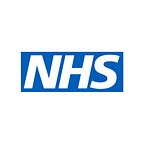Pharmacists have so much to offer — it’s vital their skills are fully recognised and used
Ravi Sharma explains how clinical pharmacists in London and across the country are supporting GPs to manage their workload and are helping patients access better, faster, more convenient care.
Many people are surprised to hear that pharmacists train for five years before they qualify — making them among the most qualified group of professionals in the NHS.
Pharmacists, with their years of intensive training, have so much to offer — it’s vital their skills are fully recognised and used.
As highly trained experts in disease and medication, pharmacists can provide specialist advice for patients — including those with chronic long term conditions. This means supporting patients with conditions like diabetes or high blood pressure, for whom regular medicine reviews with a pharmacist can help reduce side-effects and ensure people get the best out of their treatment.
Pharmacists in general practice must work closely with community and hospital pharmacy teams to provide more joined-up NHS pharmacy service, which will help ease pressure on other part of the health service.
Because of the known benefits that pharmacists can bring, the NHS — through the General Practice Forward View — is aiming to recruit around 1,500 more clinical pharmacists to work in GP surgeries in England by 2020/21.
Clinical pharmacists work as part of the general practice team to resolve day-to-day medicine issues and consult with and treat patients directly. This includes providing extra help to manage long-term conditions, advice for those on multiple medications, and better access to health checks. The role is pivotal to improving the quality of care and ensuring patient safety.
Having a clinical pharmacist in local surgeries means GPs can focus their skills where they are most needed, for example on diagnosing and treating patients with complex conditions. This helps GPs manage the growing demands on their time. Another benefit is better, faster and more convenient care for patients and potentially fewer instances of people attending A&E because they feel unable to get an appointment at their local practice.
As part of the drive to increase the number of pharmacists in GP surgeries, NHS England has been piloting this approach in around 650 practices across the country. One patient to benefit from the pilots is 63-year-old Philip from Stratford in East London:
“I now see the clinical pharmacist in my GP surgery throughout the year and now only need to see the GP now once a year for my health MOT. The way clinical pharmacists in general practice can help patients and support them is so important and helps prevent more serious illness.”
Hillview Surgery in Perivale is part of the Ealing GP Federation in London and has been part of the NHS England national pilot programme since 2016. Both its staff and patients are enthusiastic about the benefits the pilot is bringing. Not only is it helping to free up in-demand GP appointments, the team reports that the availability of an on-site clinical pharmacist is also helping patients to manage their conditions more effectively — keeping them well for longer.
Yaksheeta Dave, the resident GP Clinical Pharmacist at Hillview Surgery, is able to offer patients a wide range of services — from conducting ‘specimen’ medication reviews for patients who have diabetes, to offering ‘peak flow’ tests and inhaler technique practice for patients with asthma.
Yaksheeta said:
“The patients get a thorough review from a medicines specialist and have the opportunity to ask questions about their medications and monitoring of their medical conditions. There is shared decision making regarding management of their medical condition and empowers the patient to take responsibility for their health.
“GP time is freed up to concentrate on perhaps more complex patients and having an in-house pharmacist allows GPs to have more accessibility to someone who can help answer medication-related queries and liaise with patients e.g. post-hospital discharge.”
The Ealing GP Federation pilot site has reported that engaging a practice pharmacist and pharmacy team has saved one participating practice up to £28,000 a year so far, resulting in the release of valuable GP time of up to one hour per GP per day, in a practice with ten GPs. This equates to a saving of a whole time equivalent GP at that practice. Having a GP practice Clinical Pharmacist allows patients dedicated time with a staff member who is an expert in the use of medicines to explore solutions to complex medical conditions.
Ravi Sharma is the Programme Clinical Lead for Clinical Pharmacy at NHS England.
Find out more about the clinical pharmacy programme and the General Practice Forward View here.
